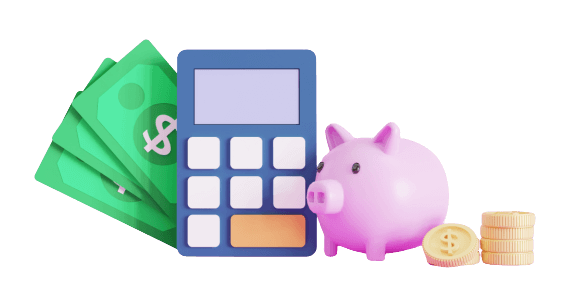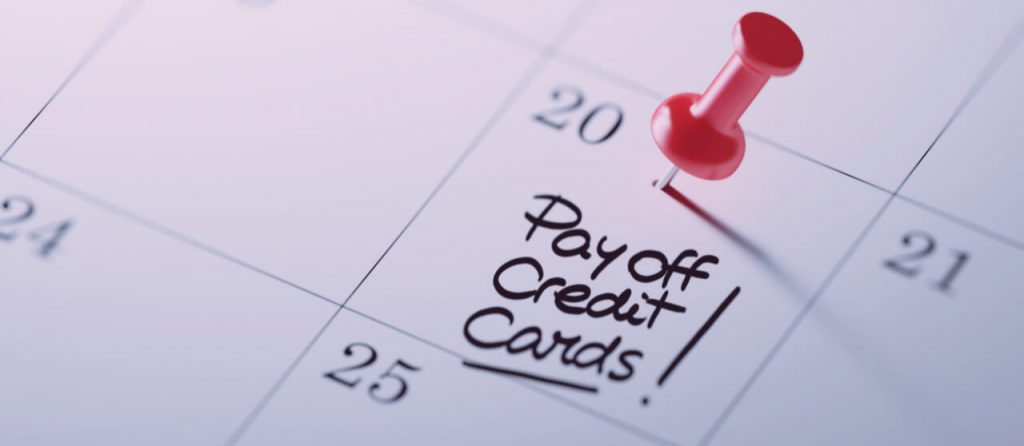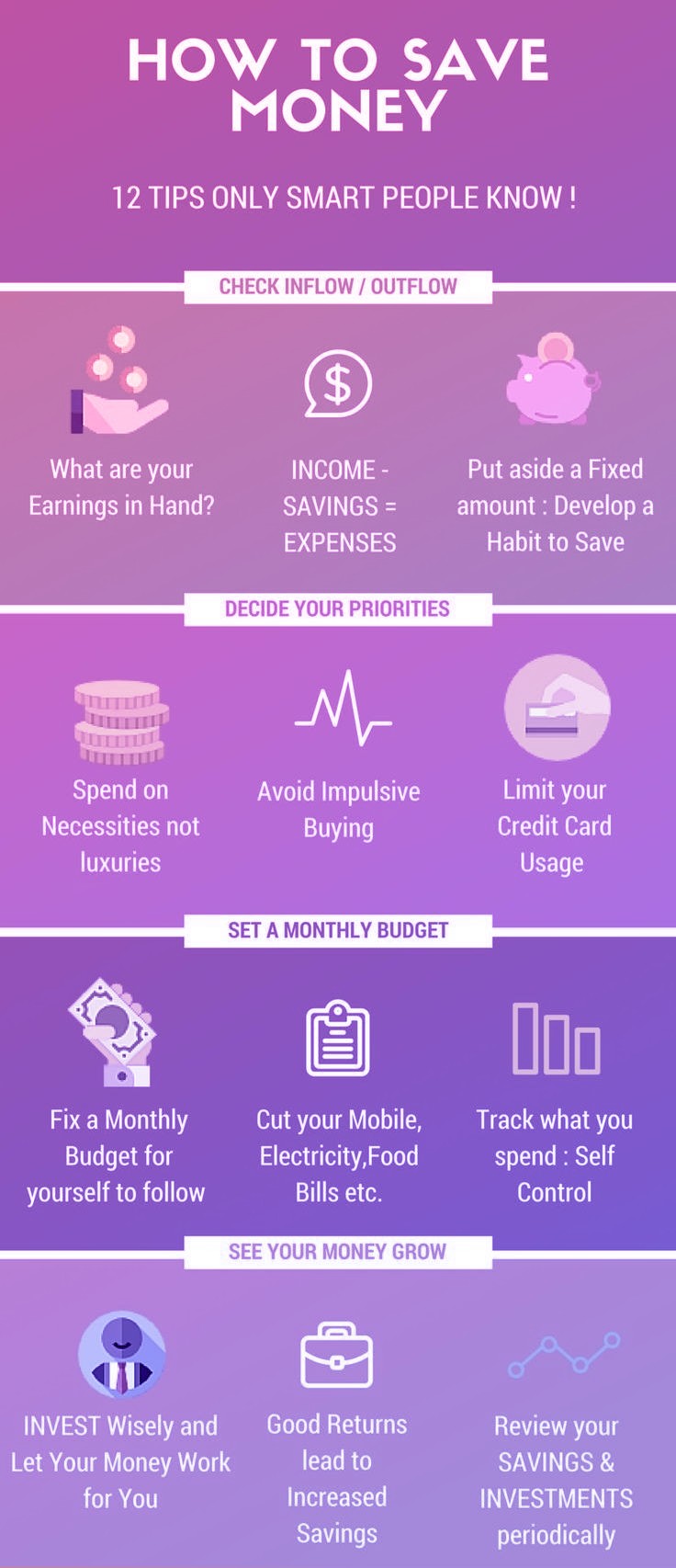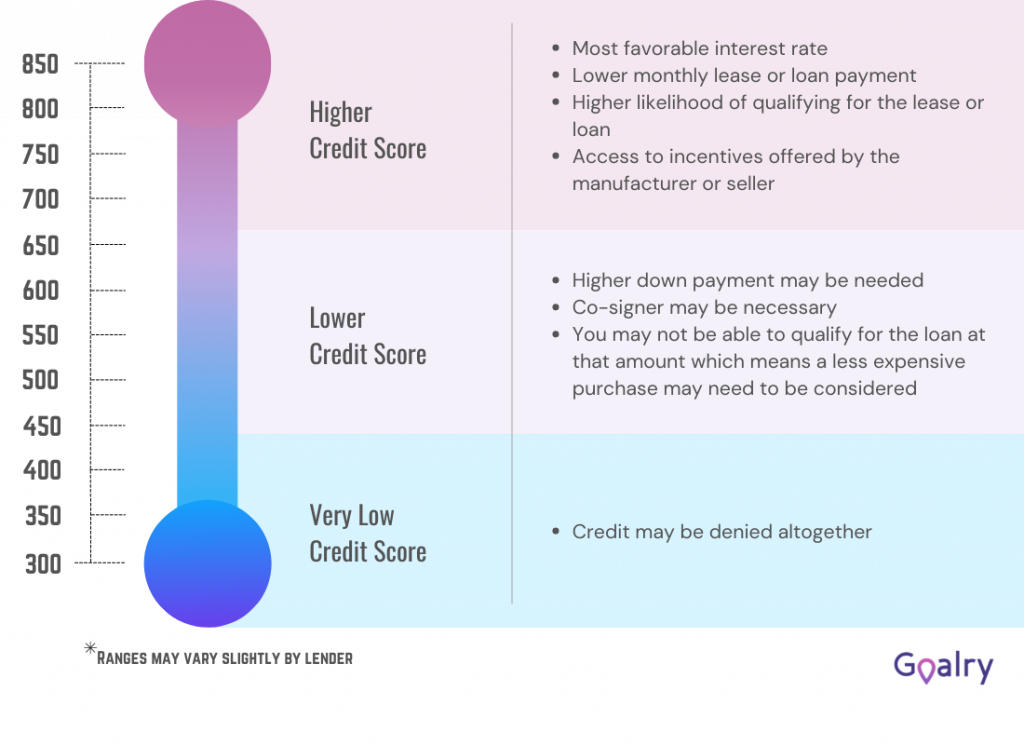10 Helpful Tips to Get Your Money in Order
When you plan to start out on your career path, security and long term financial planning are not the only things on your mind. Other things to include in your priority list include paying rent, servicing loans, paying for living expenses and being financially independent. However, thinking about all that can be overwhelming, even after securing a full-time job. For this reason, you need to put your money in order since life is always unpredictable.
Besides, you aren’t sure if there will be enough time to settle things and put them in order later. So, starting some best practices at an early stage will assist protect you if you go into a financial crisis. In this post, we’ll share the top ten helpful tips to get your money in order and create your financial stability.
1. Formulate a Realistic Budget

When the majority of individuals think of a budget, the first thing that crosses their minds is a set of rules. It detects what they can and can’t purchase. Technically, the definition is correct, but the goal of a budget is different. A budget refers to the financial guidelines or spending plan that assist you in achieving your goals. A budget allows you to manage your finances better, so you can afford to buy the things you need.
First, You Need to Determine Your Revenue
Your cash flow or income refers to the amount of cash you earn every month. If your income is irregular, like you are self-employed or commission-based, you will be required to create a different type of budget. Variable revenue is hard to manage and predict.
Next, You Will Need to Create a List of Your Fixed Recurring Expenses
These expenses comprise mortgage payments or rent, insurance, car payment, utilities and other loan payments. You can set aside 10 per cent of monthly income for savings. This is where things get tricky. Know the amount you spend on variable expenses. They are called variable since you can easily adjust to what you want to spend every month. Remember you must budge for food. Nevertheless, grocery expenses have an opposite connection with restaurant expenses. Hypothetically, spending more on groceries and cooking implies you will be spending less on restaurants.
Other types of variable expenses comprise household essentials, clothing, entertainment and personal care.
You Need to Make a Budget Once
You are almost done with the hardest part. Next, you will need to compare your expenditure to your revenue. Allocate a specific amount of cash for every category, beginning with the fixed expenses. Then, allot a specific amount for variable expenditures. Bear in mind that you can’t increase your monthly income. However, you can reduce and manage your variable expenditure. If you have any cash remaining of every month, send it to a savings account.
2. Tips for Keeping Budget on Track
The moment you’ve created a budget, tracking your expenses is another important practice. You can achieve this with the help of budgeting software, spreadsheet document or an app. For every penny that you spend on any item, record it in is a proper category. Once the month comes to an end, you will know which category you need to a lot more funds.
Alternatively, you can use your credit card to keep track of your expenditures. The credit card bill categorizes your spending and indicates a clear and correct record of what you spend. Nevertheless, this method is ideal for those people with zero credit debt.
In some cases, particularly in the cash economy, purchasing a product with cash and getting the balance tends to be hard to track. So, you will need to use a mobile app. After every transaction, input the information and track your expenditure. Most finance mobile apps are designed to automatically track your credit card expenses, and let you input the cash transactions easily.
This is an ideal way to trace your expenses, both cash and credit transactions in one platform.
At the end of the first month, you will determine what works best for you. This allows you to adjust the cash amount for the category as required. If you opt to increase a category, make sure you reduce the other. Bear in mind that all your revenue is accounted for somewhere.
You may also realize that you can’t afford your existing lifestyle. So, make sure you trim the less important things or the membership that doesn’t bring value. The majority of people have discovered that they prepare coffee at home or come with packed lunch to the workplace; they will save a huge amount of dollars every month. Additionally, you might not require a gym membership that you don’t use.
Tracking your expenditure every day is important. Appraising your budget every day will assist you in determining when you need to stop spending in a certain category. Bear in mind that the objective of the budget is to avoid overspending. So, self-control is vital. If you’ve come across a beautiful jacket, but you’ve exhausted your clothing budget, you will need to wait until your next paycheck. However, if you encounter unexpected expenses like medical bills, adjust your budget to pay for those bills without depleting your savings. If you have excess cash on recreation and entertainment budget, use part of that cash to settle your medical expenses, instead of relying on your credit card or getting into your savings.
Using the Budget
Your budget won’t help you get your money in order if you don’t use it. Refer to your budget frequently throughout the month to assist you in making informed spending decisions. Remember to update it once you pay bills or pay for other expenses. At a particular time of the month, you need to know the amount you’ve spent, considering all the expenses you haven’t paid.
Avoid Unbudgeted Spending
A vital part of your budget is the total amount left after you deduct the expenses from total income. If you have extra money, you can spend it on entertainment, but up to a specific amount. Don’t go crazy with this cash, particularly if it’s not enough to last you the whole month. Before making any huge purchase, ensure it won’t interfere with your budget.
3. Deal With Your Debts
Make sure you have a plan to deal with existing debts like outstanding loans and outstanding credit card bills. Note that all the unpaid debts accrue interests. The interest payment might be going to your savings account or retirement fund. Detail all your debts, determine the amount you owe and the terms of the loans.
There are two primary methods to get out debit easily.
The Stack Method
The stack method requires you to start by paying the loans with the highest interest rate. Create a list of your debts, starting from the highest interest rate to the lowest rate of interest. Start by making the minimum payments on your debts except for the loan with the highest interest rate. Put all your disposable cash in the first loan every month. Once you pay in full amount, proceed to the next loan with the highest interest rate. With every payment, you will be saving cash by evading additional interest charges.
The Snowball Method
If you have several small debts, you might use the snowball tactic. With this approach, you create a list of your loans, categorized by the outstanding balance, starting from the lowest to the highest. You start by paying off the smaller payments on all the debts. When it’s paid off, snowball that money to the succeeding smallest loan’s payment. You create momentum while increasing your payment amount and get rid of debts one after the other.
4. How to Manage Your Debts
Irrespective of the size of your debt, you must know how to manage your loans. If your debt is small, you need to continue making the payments and ensure it won’t get out of control. Also, if your loan amount is large, you will need to put efforts into repaying the debt as you juggle pay for other expenses. Here are some of the tips to help you handle your debts and also increase your income.
Determine Who and the Amount You Owe
Create a list of your loans, comprising your creditor, the amount of the loan, due date and the monthly installments. Get a credit report to confirm your loans on the list. Having the list of loans on paper allows you to see the clear picture and know the state of your debt.
Don’t make a list and ignore it. Review your loan list regularly, particularly when paying your bills. Update the list after a few months as your loan states changes.
Make Sure You Pay the Bills on Time Every Month
Late payments make it hard to repay your debts because you will be required to pay fine for late payment every month. When you miss two loan payments consecutively, your finance charges and interest rate will increase.
If you utilize a calendaring platform on your PC or mobile phone, input your payment and create an alert to remind you days before the payment due date approaches. In case you miss a payment, never wait till the next due date to make the payment. By that time, a report could have been sent to the credit bureau. So, make your payment once you remember.
Make a Monthly Bill Payment Calendar
Using a bill calendar will assist you in finding out which bills need payment with which income. On the calendar, indicate each bill’s amount of payment next to the due date. After that, you can fill the date of every payment. If you get your income on the same dates of every month, such as 5th and 20th, you can utilize a similar calendar every month. However, if your income comes in different dates of the month, creating a new calendar for every month will help.

Make the Least Minimum Payment
Even though you might afford to make any payment, strive to make the least payment. The least payment won’t help in making some real changes in paying off the loan. However, it prevents your debts from increasing and maintains your account in better standing. When you fail to make a payment, it gets difficult to catch up, and your account might get into default.
Decide Which Loan to Pay First
Starting with paying off your credit card debt is an ideal strategy since credit cards tend to have a high-interest rate than other loans. In your credit cards, the own with high-interest rate will take the first priority on repayment since it’s expensive.
With the help of your debt list, rank and prioritize your loans in the sequence you plan to repay them. You can opt to start paying off the loan with the lower balance.
5. Pay off Charge-Offs and Collections
Remember you will pay off as much on the loan as you can afford. If you have limited finances for paying off the debt, concentrate on keeping other accounts in good condition. Never sacrifice your loan-free accounts for those that have affected your credit score. Instead, pay off those accounts when you can manage to do it.
Utilize Your Emergency Funds to Fall Back On
When you can’t access your savings, you will be forced to get a loan to offset some emergency expenses. Even those small emergent funds will cater little expenditure that arises once in a while. First, make sure you create a small emergency fund like $1000. The moment you achieve, aim to make a bigger fund such as $2000. Ultimately, you will want to accumulate a reserve of a half a year of living expenses.
Utilize Your 30-Day Budget to Plan Your Expenditure
Creating a budge assist you in making sure you have enough funds to cater for all your monthly expenditure. Plan in advance and take viable actions if you notice that you won’t have sufficient cash for your bills for the month. Additionally, a budget helps you know how to spend any additional funds left after all the expenses are taken care of. You can use the additional cash to pay off your loans faster.
6. Know the Signs That You Need Assistance
In some cases, you might be unable to pay for bills and pay off your loan. That means you will need to ask for help from a counselling agency. Other alternatives for debt relief include debt settlement, bankruptcy and debt consolidation. They all have pros and cons, so do your homework before making a decision.
If you believe you have a spending problem, get help from debt help groups or debtors anonymous.
7. Create an Emergency Fund
The moment you have paid off all your debts, all your cash that was channeled towards loan repayment is now idle. It’s time to create an emergency fund. Setting aside some cash for difficult times will assist you to avoid getting into debts. Additionally, it helps you put free money in order. Emergency funds are meant for unplanned expenditures like unexpected vehicle repair or if you lose your job. Preferably, your emergency fund should be six months of your expenditure. That is good since you have a budget.
So, you know the amount you spend every month, and you can multiply the figure by 6. This is the latest saving goal. Once you create your emergency fund, you can start building up your savings. Savings are meant for planned expenses like an upcoming trip or buying a new computer. Since you are comfortable with the budget, you might start saving for long-term goals like retirement. Ideally, you will have a chance to set aside cash for both savings and retirement.
Understand Your Expenditures and Monthly Income
The majority of people don’t know the amount they spend on items every month. However, this problem has a solution. Here is what you need to do. Try to keep track of your expenses. Get all your purchasing receipts, including utilities, groceries and restaurant bills. Also, don’t forget to keep track expenses paid via credit card as well as cash. The goal is to have your expenses, both fixed and valuable computed to get your total amount. This lets you see the entire picture and understand how to manage your finances in future and make sure your money is in order. Lastly, comparing your historical performance over time is made possible.
The majority of people are not ready to disclose what they make a month. That is the difference between monthly income and monthly expenses. Many individuals know their monthly revenue but lack knowledge of their total monthly expenses.
Nevertheless, you need to find out our total monthly expenses and deduct it from your total monthly income.
Here is how the outcome will pan out:
- If your end result is negative, that means you spent more than your income. So, you need to reduce expenses and spending until the total is zero. This will help you put your money in order easily.
- If you have a positive result, that means you spent less than your income. So, you can increase your savings or increase your loan payment. This is one of the best ways to put your money in order.
Make sure you know your income and expenses and have a clear knowledge of the cash coming in and out of your life. Then, you can take additional steps to put your money in order better. You can also increase your income by working from home.
Consolidating Your Debt
Debt is one of the dreaded terms. Nobody likes debt, and the majority of individuals that seek help managing their finances are looking for help on how to get out of debt. According to research, 80% of Americans have debt.
When it comes to dealing with debt, getting it under control is the first thing to do, before you think of eliminating it. If you have student loans, credit card debts and other loans, try to consolidate them and make sure you get the lowest rate. However, make sure you take proper steps to control your cash. Numerous options allow you to combine multiple unsecured loans like credit cards, payday loans and personal loans into a single bill instead of paying them individually. Maybe you have one credit card loan, and you can’t afford to pay off. In that case, make sure you pay at least the minimum amount immediately you receive the credit card bill. If your finance can allow it, and you find additional cash, remember to make some payments weeks later. Maintain this payment cycle until you settle the loan.
8. Get Rid or Reduce Unnecessary Expenses
Are you a Starbuck enthusiast? If you’re purchasing a Venti Caffe latte every day, you will be spending like $4. That means you will be spending $120 a month and $1400 a year on that. How about you prepare your own blend at your house to satisfy your cravings?
It doesn’t make sense when you pay for a gym membership that you don’t attend. Try to cancel all the membership, accounts and subscription that you can live without.
Bear in mind that the goal is to learn how to put your money in order and manage it well by taking every dollar into account. Therefore, do some examination and reduce some expenses when you come across an opportunity, particularly if it’s something that won’t affects your wellbeing.

Make Sure You Save 10-15% For Retirement
While it’s still earlier, starting to save money for your retirement now is important as you will have a chance to go on vacation to any location. First, you need to create a savings target. It will help you know how much you should put aside every month to meet the retirement objectives that will let you live the kind you lifestyle you envisage.
For example, you are 23, and you don’t have any savings, but just secured a job giving $45,000 a year. If you opt to save 10% of your annual income then by the time you retire at 67, you will have up to $200,000 saved.
Analyze and Understand Your Credit Score
Credit reports are important. A credit score refers to a number between 300-850 that acts as a grade/score that reflects in your past and existing loans, mortgages, credit cards, loans and other reported loans.
It aims to defines how creditworthy you are. The score will have a great impact on your ability to borrow in future. For this reason, you must analyze and understand your credit history to be sure it is updated and identify any mistakes.

9. Use a Personal Finance App
When your finances seem so complicated, you need to simplify them. And how do you do it?
Start by moving with technology and throwing away or Casio or abacus calculator. There are modern and free tools in the market that will help you by showing ways to get your money in order. The tools will also do hard computing and budgeting tasks.
Most finance tools like free MoneyStrands app will let you manage securely, control and consolidate your finance in one place. Additionally, you can also access all your financial transactions, account balances, spending behaviors and budget. You can use that information to make better decisions and get your money in order.
Follow Money Management Resources
Knowledge is power when it comes to getting your money in order. Every financial expert well known in society started like anyone else. They unceasingly learned and educated themselves and transformed their passion into their career.
Financial professionals are ready to give you the much-required advice on how to get your money in order right way. They will also share inspirational stories to help you be the best and gain the financial stability you’ve been craving for many years. When it comes to finding the professional who will mentor you, pay attention to what they tell you. Absorb the information and take the advice that will assist you to get your money in order.
10. Find a “Money Friend.”
Well, that doesn’t mean that you distribute your hard-earned money to your colleagues unless you are feeling philanthropic. Get a friend or family member who has commendable financial habits and discuss your financial challenges and goals. According to studies, good finance behaviors rub off on close colleagues. So if you notice you are struggling with your finance while your colleagues always seem to have his money in order, pick that guy as your money friend.
Having a different mindset will also assist you in making informed decisions. For instance, if you and your colleague are trying to be budget-conscious about lunch, you can opt to carry packed lunch instead of spending a lot of cash on sandwiches.
In Conclusion
Generally, make sure you are well informed, practice financial management, and maybe you might become the next financial pro. That means to have many people seeking your skills on how to get their money in order.
Having the capability to get your money in order effectively will make your life to flow easily. Additionally, it will help you lessen your stress levels since you don’t have any loans stressing you. Lastly, organizing your finances save you rime and gives you peace of mind. There are also numerous money tips that can help you manage your finances effectively.


Kevin Strauss is a personal finance writer and homeowner based in the Los Angeles area. Being in one of the most expensive markets in the country, he’s learned to maximize resources to plan for both his monthly expenses and future financial needs. Kevin has a passion for helping those in a similar situation navigate the complex world of personal finance so they can pay down debt, plan for the future and live out their dreams. In addition to covering personal finance in depth on Loanry.com and Cashry.com, Kevin shares his expertise with readers who want to create budget-friendly habits across the web.

